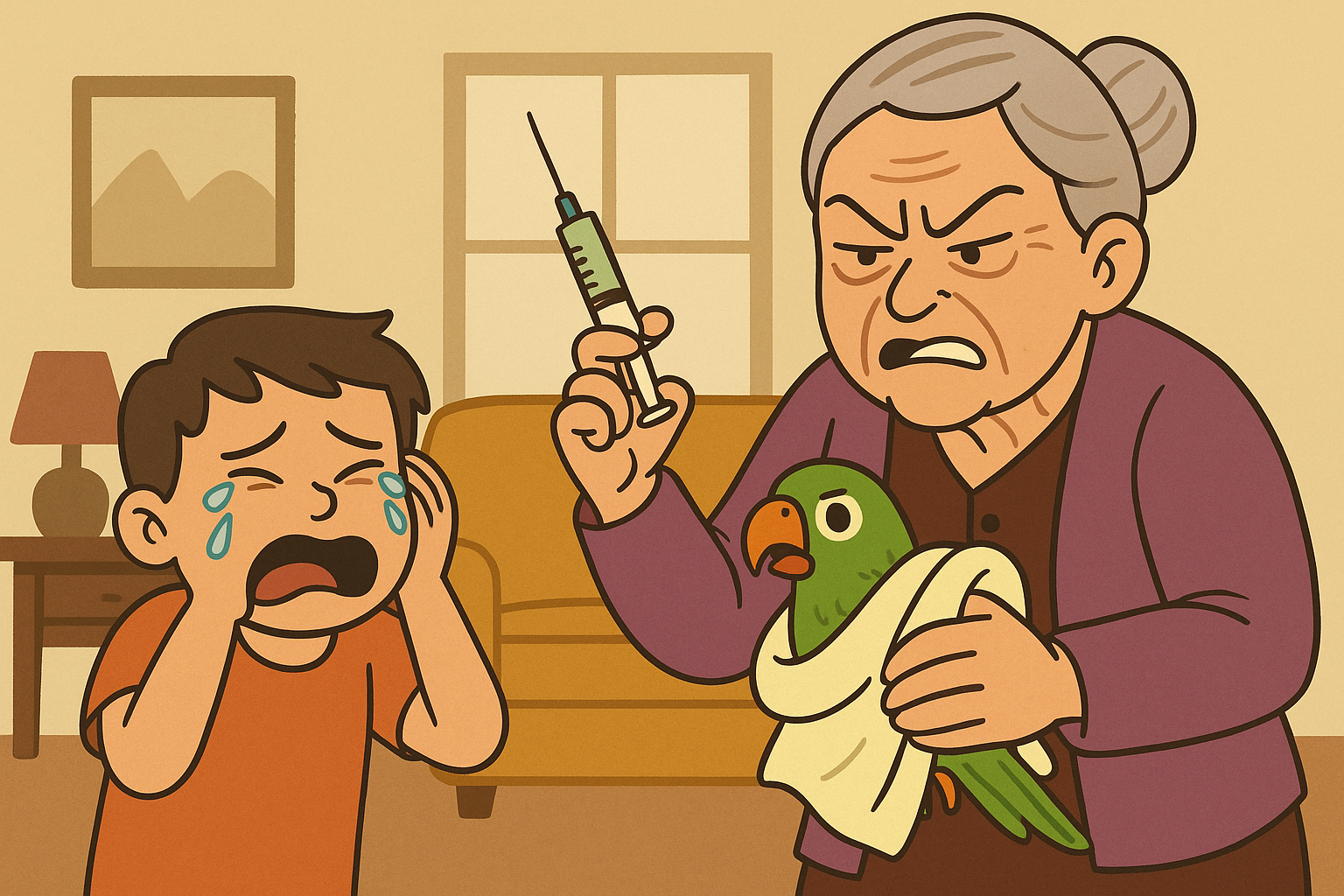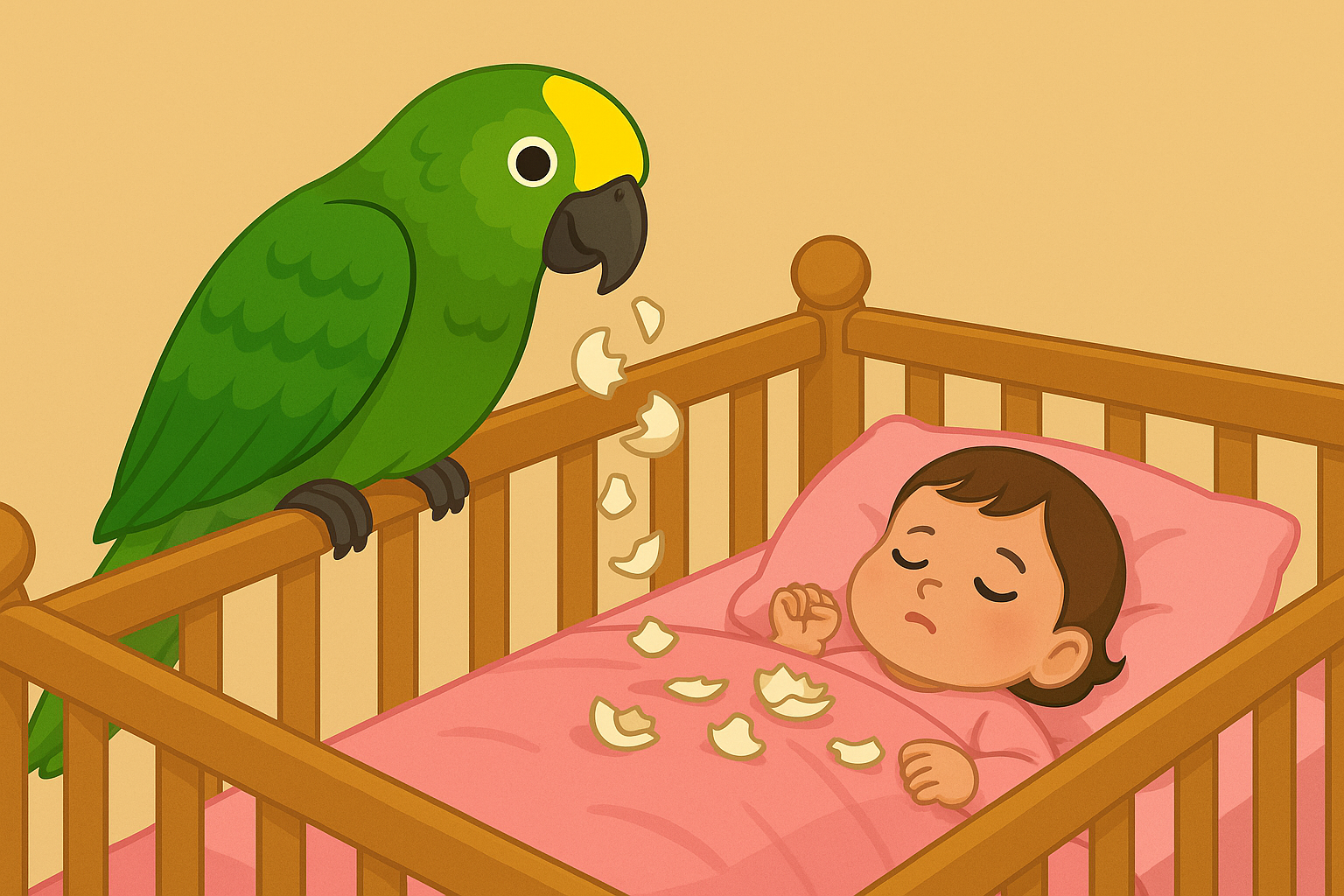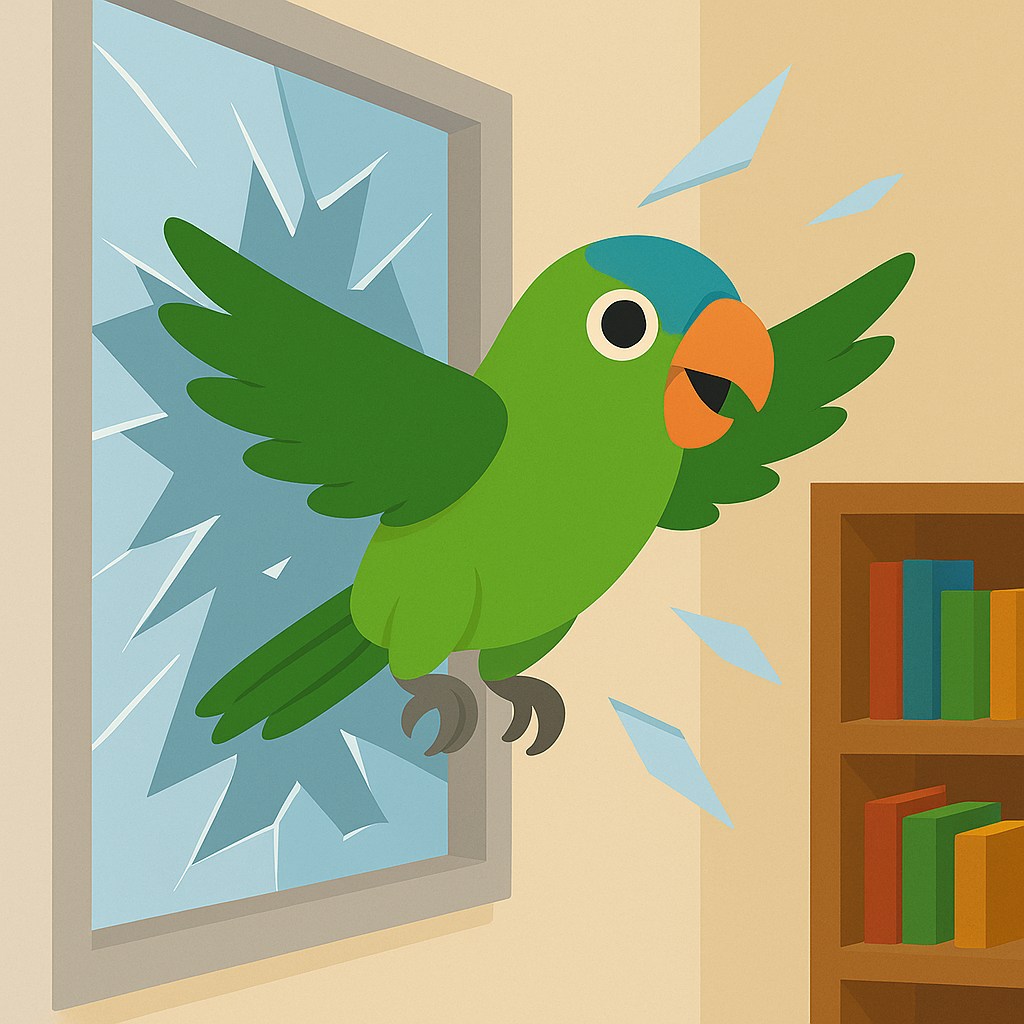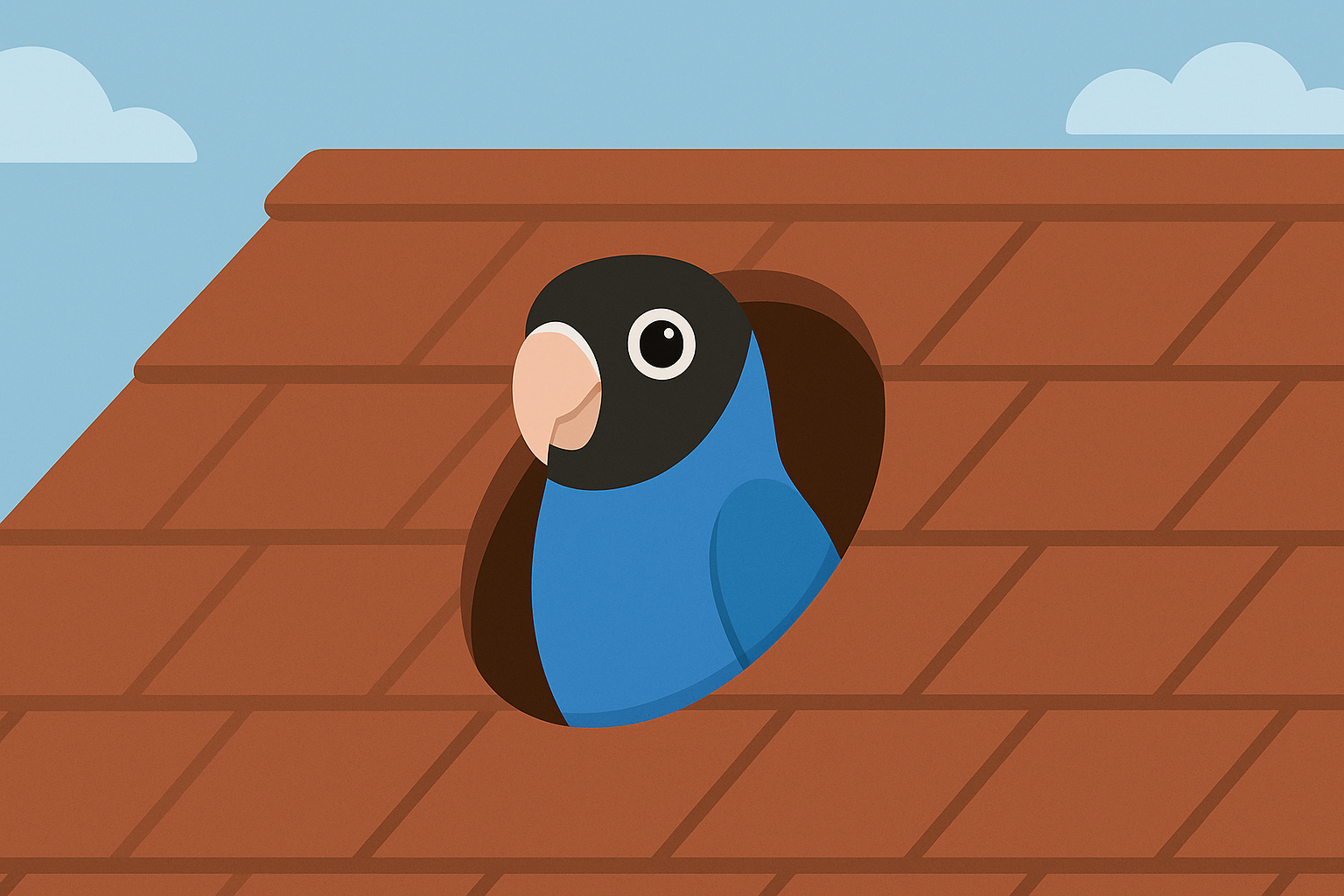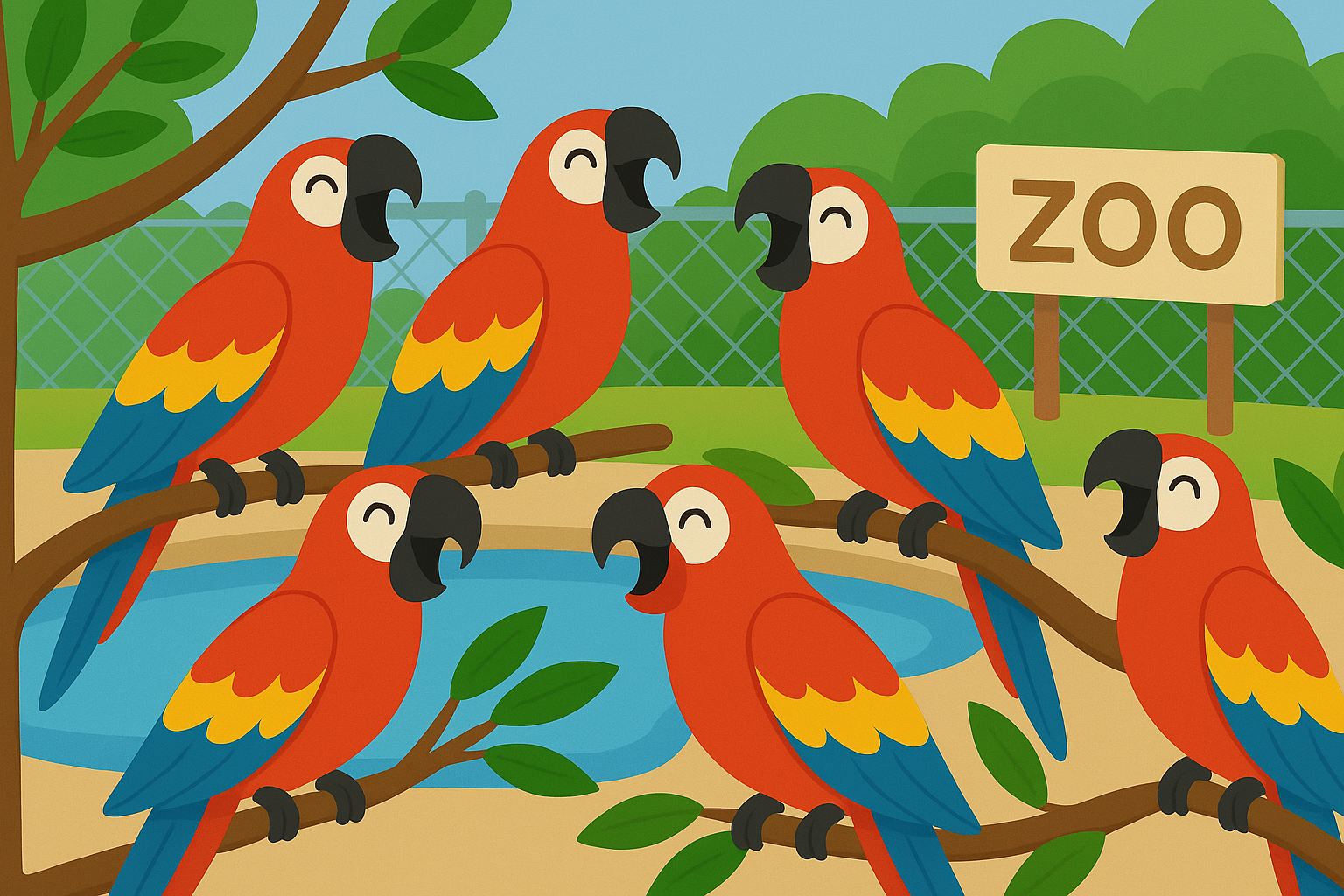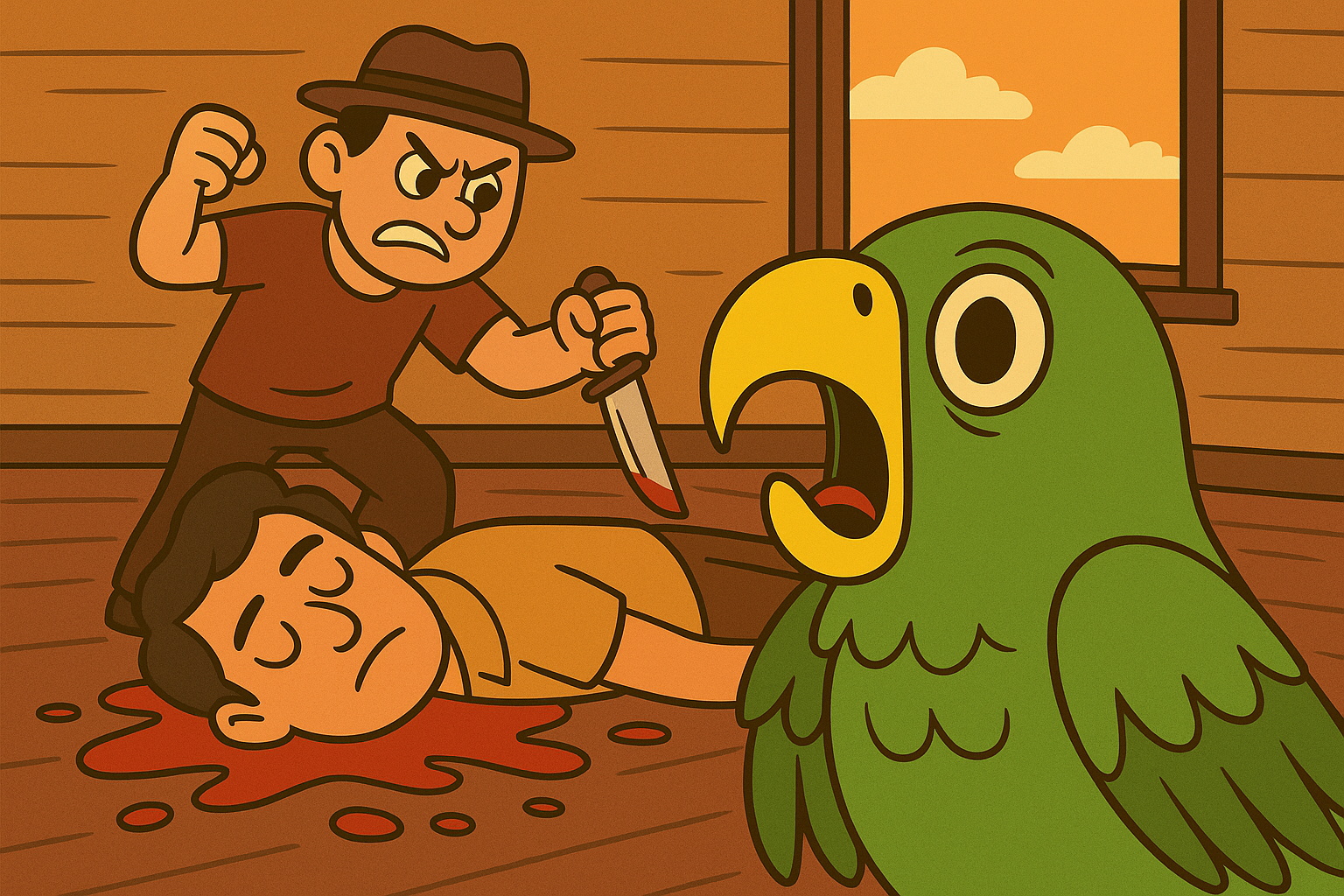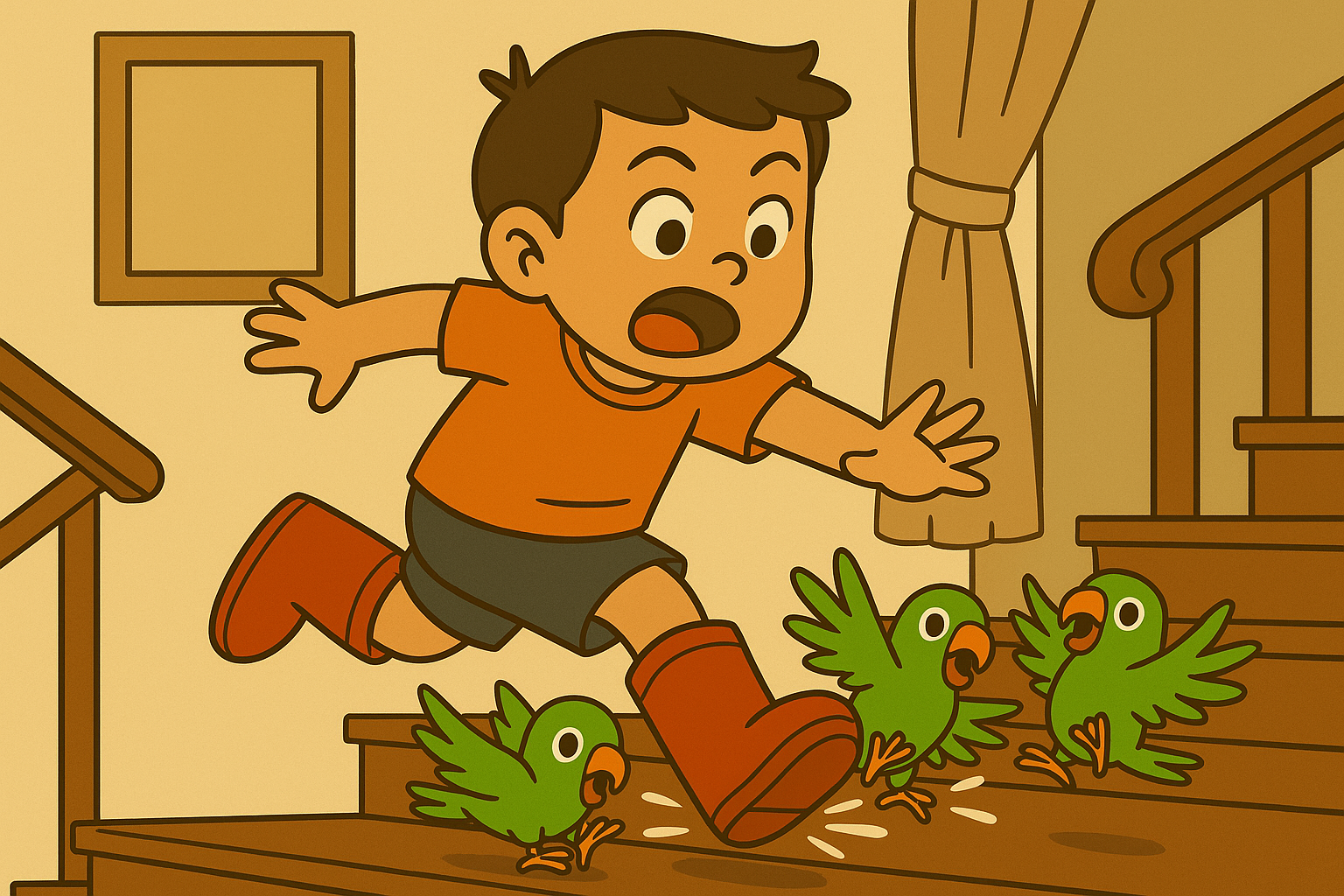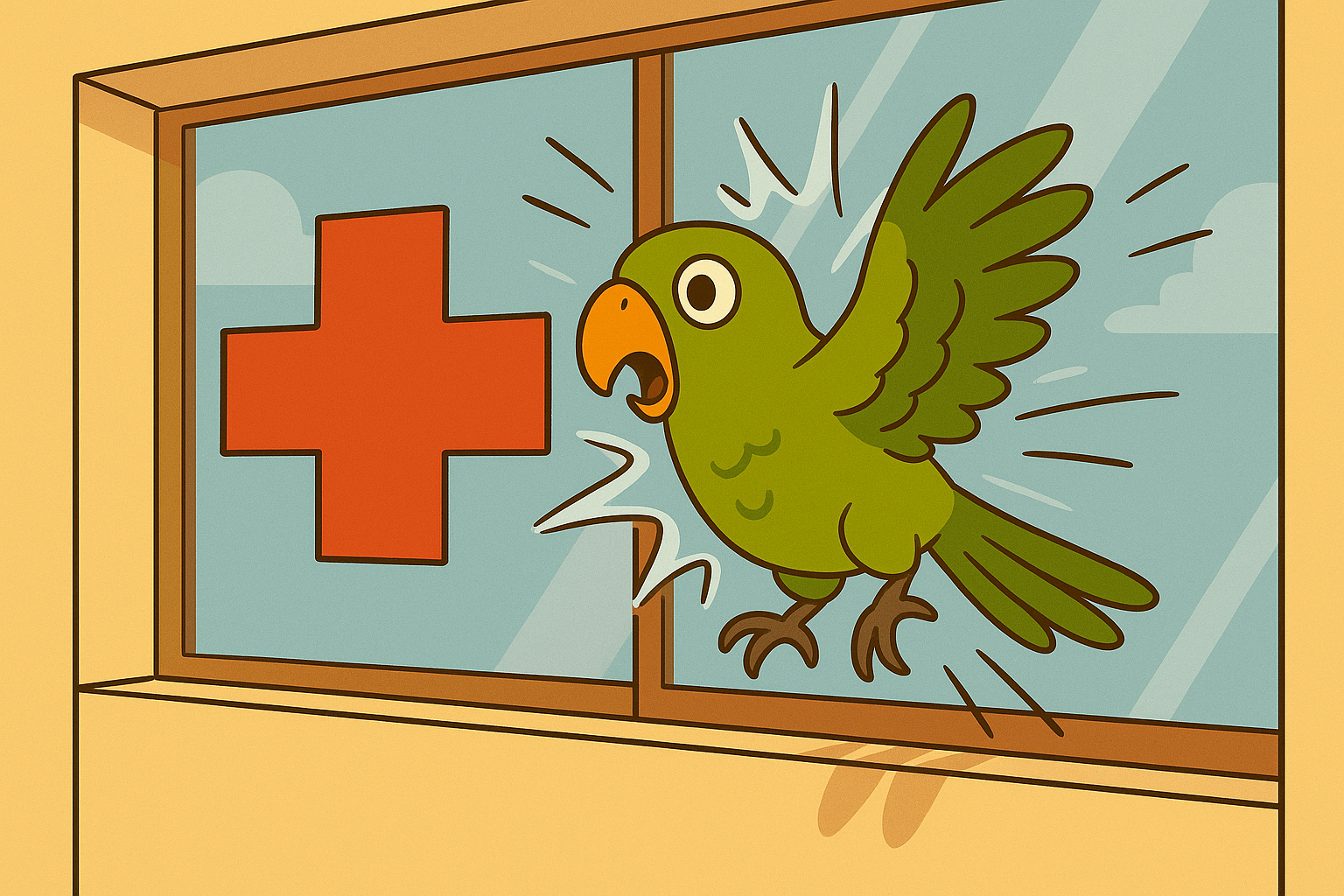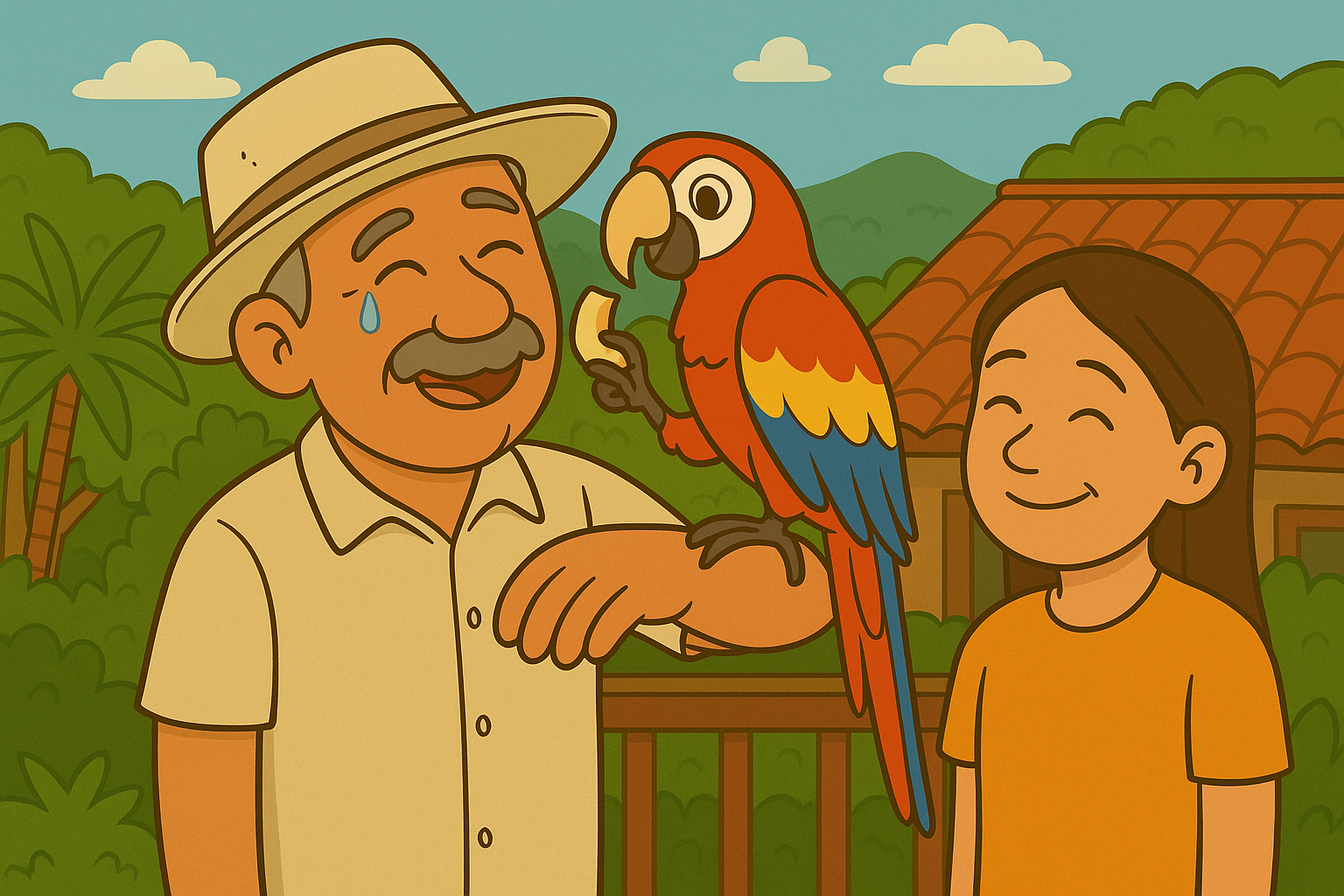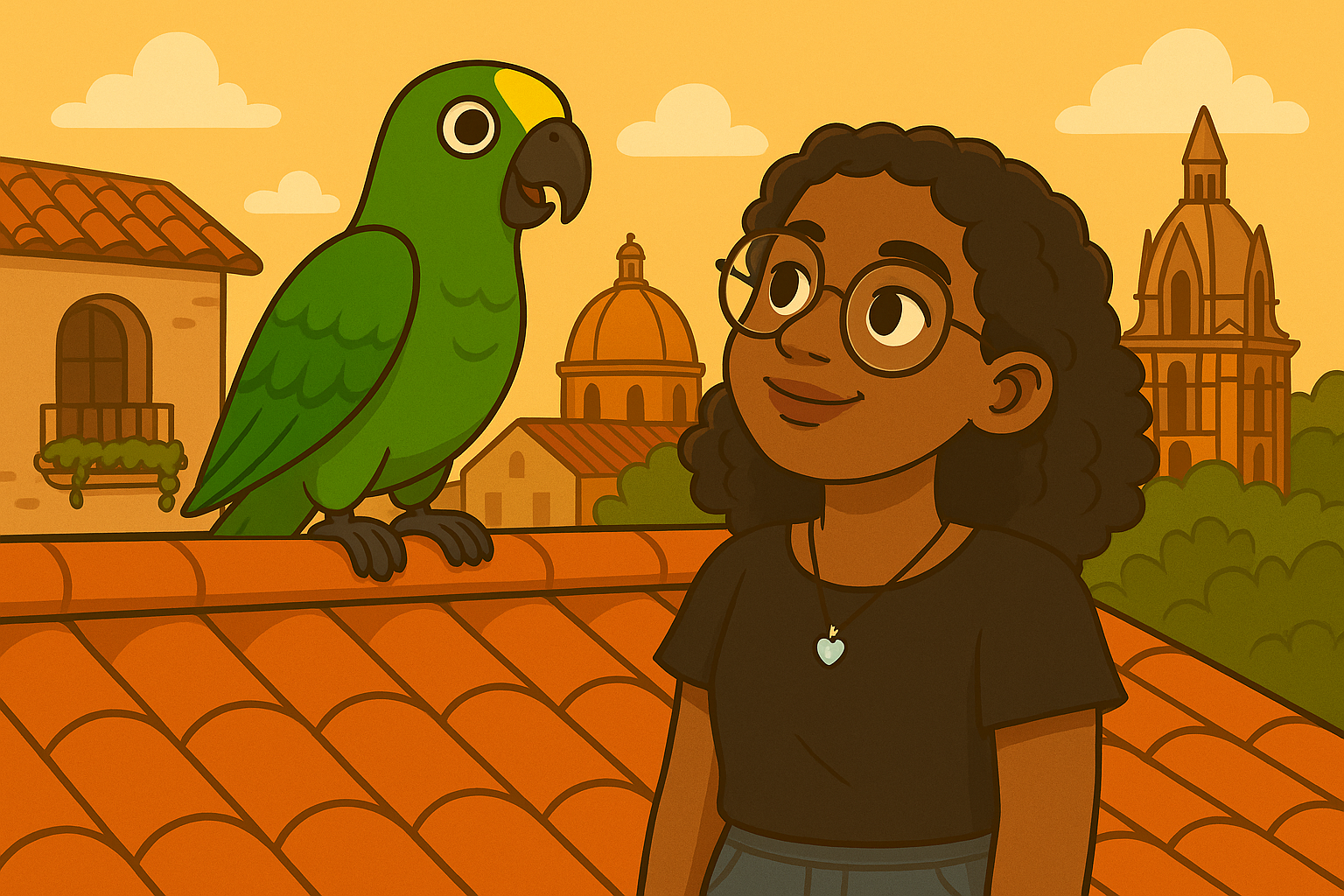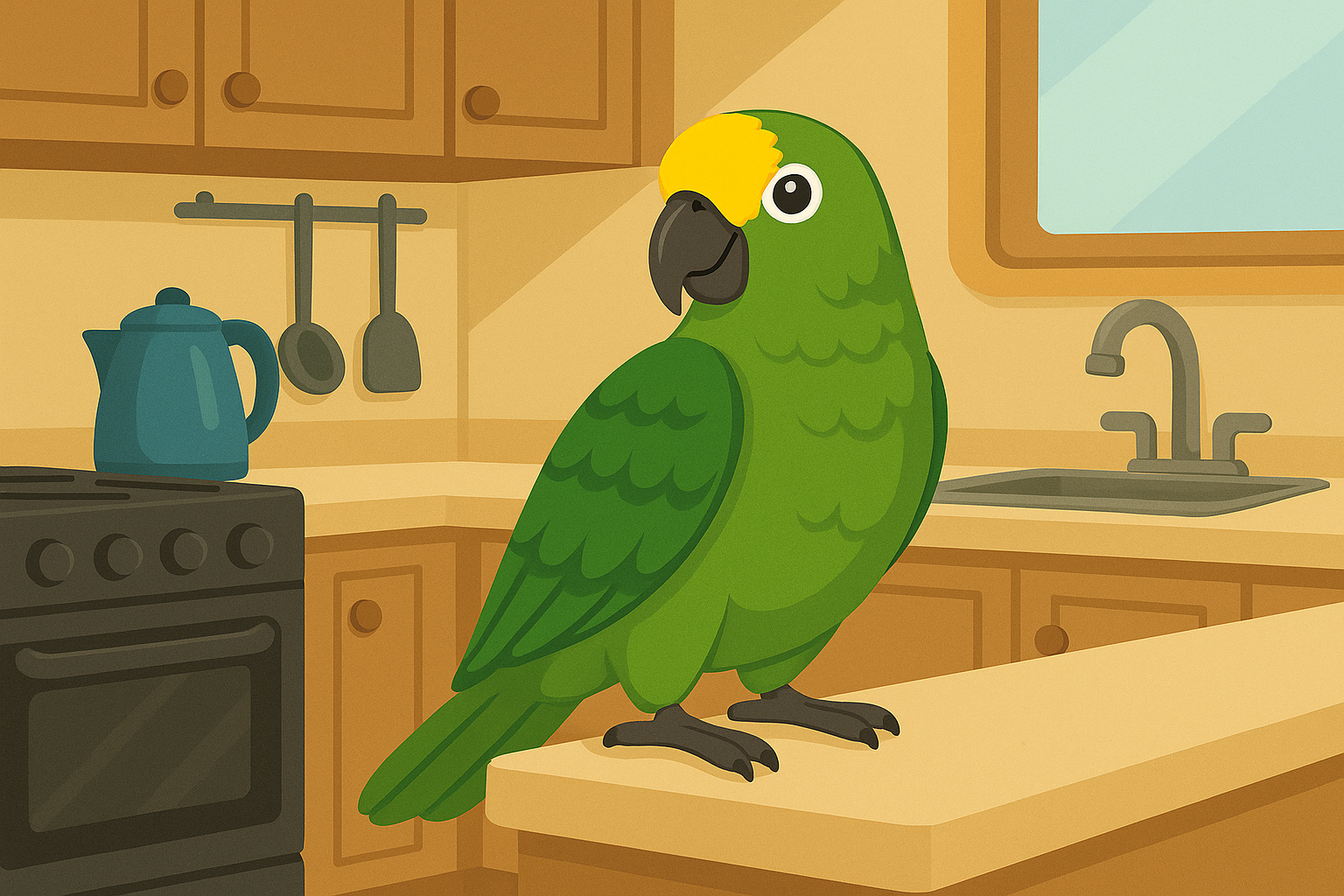Socrates, the Parrot of Palermo Street
The story of Socrates, the parrot from Palermo Street, is not just a compelling narrative about a crime and its mysterious context. It is also a deep and symbolic portrait of the way in which animals have historically been silenced by a culture determined to consider non-humans as inferior beings, incapable of judgment, emotion, or truth.
In this story, a parrot—an innocent repeater of a heartbreaking phrase—becomes the only witness to a murder. However, his testimony is called into question precisely because it comes from an animal. That scene resonates with a painful question: how many truths have we ignored simply because we did not know how (or did not want) to listen to those who do not speak our language?
Human justice, based on logos, on rational and structured speech, often forgets that there are other ways of saying, of feeling, and of remembering. The cry repeated by Socrates is, in essence, the echo of a conscience that does not distinguish between species. His phrase is not a mechanical babble: it is a cry of memory, an act of loyalty, even of love.
This parrot confronts us with the arrogance of anthropocentrism, with our tendency to assume that moral value and the right to be heard belong only to those who can articulate a defense in human terms. And yet, in his astonished gaze and in his repeated phrase, Socrates reminds us that injustice needs no translation.
Perhaps the real crime was not only the death of Damián, but also the silence imposed on Socrates. Because denying the voice of those who do not speak like us is to perpetuate a system of domination that marginalizes all beings who feel, remember, and love.
The story of Socrates, the parrot from Palermo Street, is not just a compelling narrative about a crime and its mysterious context. It is also a deep and symbolic portrait of the way in which animals have historically been silenced by a culture determined to consider non-humans as inferior beings, incapable of judgment, emotion, or truth.
In this story, a parrot—an innocent repeater of a heartbreaking phrase—becomes the only witness to a murder. However, his testimony is called into question precisely because it comes from an animal. That scene resonates with a painful question: how many truths have we ignored simply because we did not know how (or did not want) to listen to those who do not speak our language?
Human justice, based on logos, on rational and structured speech, often forgets that there are other ways of saying, of feeling, and of remembering. The cry repeated by Socrates is, in essence, the echo of a conscience that does not distinguish between species. His phrase is not a mechanical babble: it is a cry of memory, an act of loyalty, even of love.
This parrot confronts us with the arrogance of anthropocentrism, with our tendency to assume that moral value and the right to be heard belong only to those who can articulate a defense in human terms. And yet, in his astonished gaze and in his repeated phrase, Socrates reminds us that injustice needs no translation.
Perhaps the real crime was not only the death of Damián, but also the silence imposed on Socrates. Because denying the voice of those who do not speak like us is to perpetuate a system of domination that marginalizes all beings who feel, remember, and love.
Author: Diógenes de Sínope
Country, City:
Colombia - Medellín
Date: 2025-05-25
Read Story

![[:es]Nature_tours_horseback_riding_cartagena_Mesa de trabajo 1 copia 38[:]](https://loros.org/wp-content/uploads/2025/02/Nature_tours_horseback_riding_cartagena_Mesa-de-trabajo-1-copia-38.jpg)
